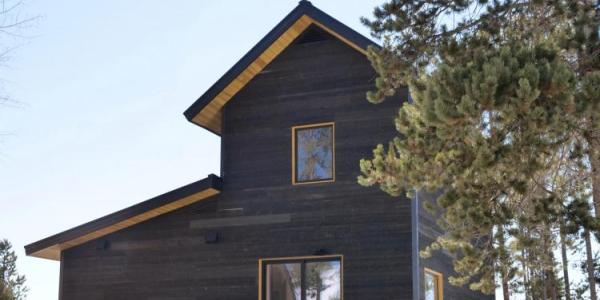
 The proposed project would use 25 acres of land near Tuskegee University.
The proposed project would use 25 acres of land near Tuskegee University.Researchers at CU Boulder and Tuskegee University are working together to create a hands-on "living learning laboratory” for students to connect through a long-term sustainability and equity project. The partnership would provide students with a unique interdisciplinary and community engagement effort with many lasting benefits when successfully established.
The proposed project would use 25 acres of land from the nonprofit Harvest Dreams for research near Tuskegee University to study questions around sustainable agricultural-land infrastructure and climate resiliency. That includes testing and designing recycled materials in construction, embedding solar power, and creating rainwater catchments, for example.
At the same time, students from both universities will conduct interviews in the surrounding community and reflect on how the culture and history of the area – including colonialism and enslavement – tie into the creation and implementation of their sustainability-focused solutions.
“That aspect is a really important part of this project, and it builds cultural empathy and understanding between students at both universities as they work to create both socially and ecologically sustainable growth,” said Jessica Rush Leeker, a professor in CU Boulder’s Engineering Management Program and the project’s leader. “We are really stressing working collectively – across universities and STEM disciplines – on a common goal for lasting community transformation and understanding.”
Rush Leeker and her team started work on the project this summer through a seed grant from the College of Engineering and Applied Science as part of the new Resilient Infrastructure with Sustainability and Equity research theme. That group – and other interdisciplinary groups like it in the college – are made up of faculty, staff and students and help coordinate faculty hires and share facilities. Seed grants from those groups are used to leverage work that could provide transformational societal impact, said RISE Director Shideh Dashti.
“This project really embodies a lot of what we are trying to do with our theme: converge and leverage new developments and world-class expertise in disaster resilience, sustainable design, and social justice across engineering and the CU Boulder campus and beyond to find lasting solutions,” she said. “This project truly has the potential for extensive, positive societal impact and that is really what we want to support and elevate.”

Jessica Rush Leeker
Researchers from the Mortenson Center in Global Engineering and the Environmental Design Program will also be involved at CU Boulder, while Tuskegee University's Taylor School of Architecture and Construction Science and Management and College of Agriculture, Environment, and Nutrition Sciences will lead the work in Alabama. Additionally, the land used for the project comes from Robertha Richardson, founder of Harvest Dreams, who purchased the land where her ancestors were once enslaved.
By supporting projects like this, Rush Leeker said Richardson hopes to create a versatile space for education, community gatherings, food growth, and much more. The living lab will also serve as a demonstration site and help establish a farmer’s market, which is crucial in addressing food injustice in the surrounding community, where a single grocery store provides limited produce options.
Rush Leeker said she was thrilled to be partnering with Tuskegee University, which has been pivotal to Black history in the United States. It was home to educator Booker T. Washington, civil rights icon Rosa Parks, and agricultural scientist George Washington Carver. It is also one of the most well-known historically Black universities in the country.
Rush Leeker and her team recently submitted a full funding proposal to the National Science Foundation and will be exploring other opportunities to grow and shape the project. She said one of the main goals would be creating lasting relationships and sustainability in the community while also taking lessons learned and applying them in the future.
“We want to show how multiple universities and teams building together can provide profound and lasting change from sustainable design on up through post-construction,” she said. “Hopefully we can demonstrate an active learning approach focused on sustainable civic innovation that can be replicated at other university partnerships to strengthen communities wherever they are.”
The Co-PIs at CU Boulder include Laura MacDonald, the managing director of the Mortenson Center in Global Engineering and the Global Engineering Undergraduate Program, and Shawhin Roudbari, an assistant professor of environmental design.



